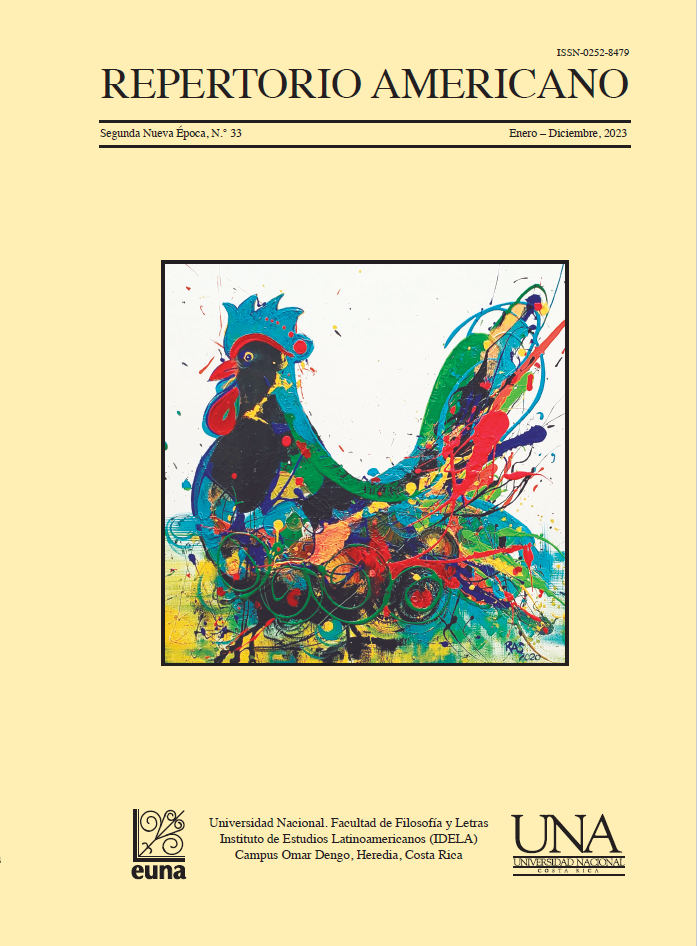Considerations about race and identity in the conformation of Latin America
DOI:
https://doi.org/10.15359/ra.1-33.15Keywords:
Latin America, Otherness, identity, coloniality, ethnicityAbstract
This essay aims to carry out a brief analysis of the conformation of Latin America. Among the results, it has been visualized the evident role that, confessional clashes and political-economic disputes between the colonizing countries have had in the implantation of relationships based on forms of hierarchization, segregation and discrimination of the Amerindian, Afro-descendant, and mestizo populations, during the process of conquest and the subsequent independence. Especially considering the need on the maintenance of the domination of the colonial powers and the subsequent colonial caste system in the periods of “independent” life. At the same time that it is urged, given the contemporary conditions, for the discussion and deep reflection of issues such as alter subjectivities and Otherness. In this way, an exposition of the subject is carried out, beginning with the repercussions and characteristics of the colonial era, followed by a review of the particularities and effects that occurred in the post-Independence times, to continue with an analysis of some current debates around subjectivities and identities, ending with a discussion on the conclusions of the process.
References
Alonso, R. (2018, octubre 29). Los vikingos, el primer pueblo europeo de la historia en llegar a América. ABC.es. https://www.abc.es/historia/abci-vikingos-primer-puebloeuropeo-historia-llegar-america-201810280219_noticia.html
Cabot, J. T. (2021, abril 21). La rivalidad entre Felipe II e Isabel I de Inglaterra. La vanguardia. https://www.lavanguardia.com/historiayvida/edadmoderna/20170309/47310735450/la-rivalidad-entre-felipe-ii-e-isabeli-de-inglaterra.html
Casaús Arzú, M. E. (2014). El mito impensable del mestizaje en América Central. ¿Una falacia o un deseo frustrado de las élites intelectuales? Anuario de Estudios Centroamericanos, 40, 77-113.
Catelli, L. (2020). Arqueología del mestizaje. Colonialismo y racialización. Ediciones UFRO.
Deutsche Welle (2021, octubre 20). Los vikingos llegaron a América mucho antes que Colón, nuevo estudio lo confirma. Deutsche Welle (DW). https://www.dw.com/es/vikingosllegaron-a-am%C3%A9rica-mucho-antes-que-col%C3%B3n-nuevo-estudio-lo-confirma/a-59566737
Drotbohm, H. y Winters, N. (2020). Flows, Circulations and their Opposites: Ethnographic Perspectives and Theoretical-Methodological Challenges. Vibrant: Virtual Brazilian Anthropology, 17, 1-20.
Dussel, E. (1993). Europa, modernidad y eurocentrismo. En E. Lander, La colonialidad del saber: eurocentrismo y ciencias sociales. Perspectivas latinoamericanas (p. 248). CLACSO, Consejo Latinoamericano de Ciencias Sociales.
Dussel, E. (1994). 1492: El encubrimiento del otro: hacia el origen del mito de la modernidad. UMSA, Facultad de Humanidades y Ciencias de la Educación, Plural Editores.
Echeverría, B. (2011). La múltiple modernidad de América Latina. En B. Echeverría, Crítica de la modernidad capitalista (pp. 241-259). Vicepresidencia del Estado Plurinacional de Bolivia.
Guerra Vilaboy, S. (1997). Etapas y procesos en la historia de América Latina (Documento de trabajo, Informe No 2; Cuadernos de Trabajo, p. 63). Instituto de Investigaciones Histórico-Sociales. http://biblioteca.clacso.edu.ar/Mexico/iih-suv/20170608043740/pdf_473.pdf
Iglesias Cavicchioli, M. (2019). The world’s last best hope: el excepcionalismo americano y la política exterior de Estados Unidos en la era Obama. Revista Iberoamericana de Filosofía, Política, Humanidades y Relaciones Internacionales, 21(41), 161-185. https://doi.org/10.12795/araucaria.2019.i41.08
Marín-Guzmán, R. (1982). La Doctrina Monroe, el Destino Manifiesto y la expansión de Estados Unidos sobre América Latina. El caso de México. Revista Estudios, 4(julio-diciembre), 117-141. https://doi.org/10.15517/RE.V0I4.30806
Montano, R. (2018). El ego conquiro como inicio de la modernidad. Teoría y Praxis, 16(32), 13-27. https://doi.org/10.5377/typ.v0i32.6389
Moreira Argudo, M., Alcívar Trejo, C. y Calderón Cisneros, J. (2014). El Destino Manifiesto y la Doctrina Monroe: teorías que influyeron en la pérdida de influencia de la política norteamericana en los países de América Latina en el siglo 21. Contribuciones a las Ciencias Sociales, febrero 2014. https://www.eumed.net/
Published
How to Cite
Issue
Section
License
Las cartas de entendimiento se facilitarán a las personas autoras al momento de aceptación de su trabajo para publicarse.
Todos los contenidos son de libre acceso con sólo citar la fuente.







